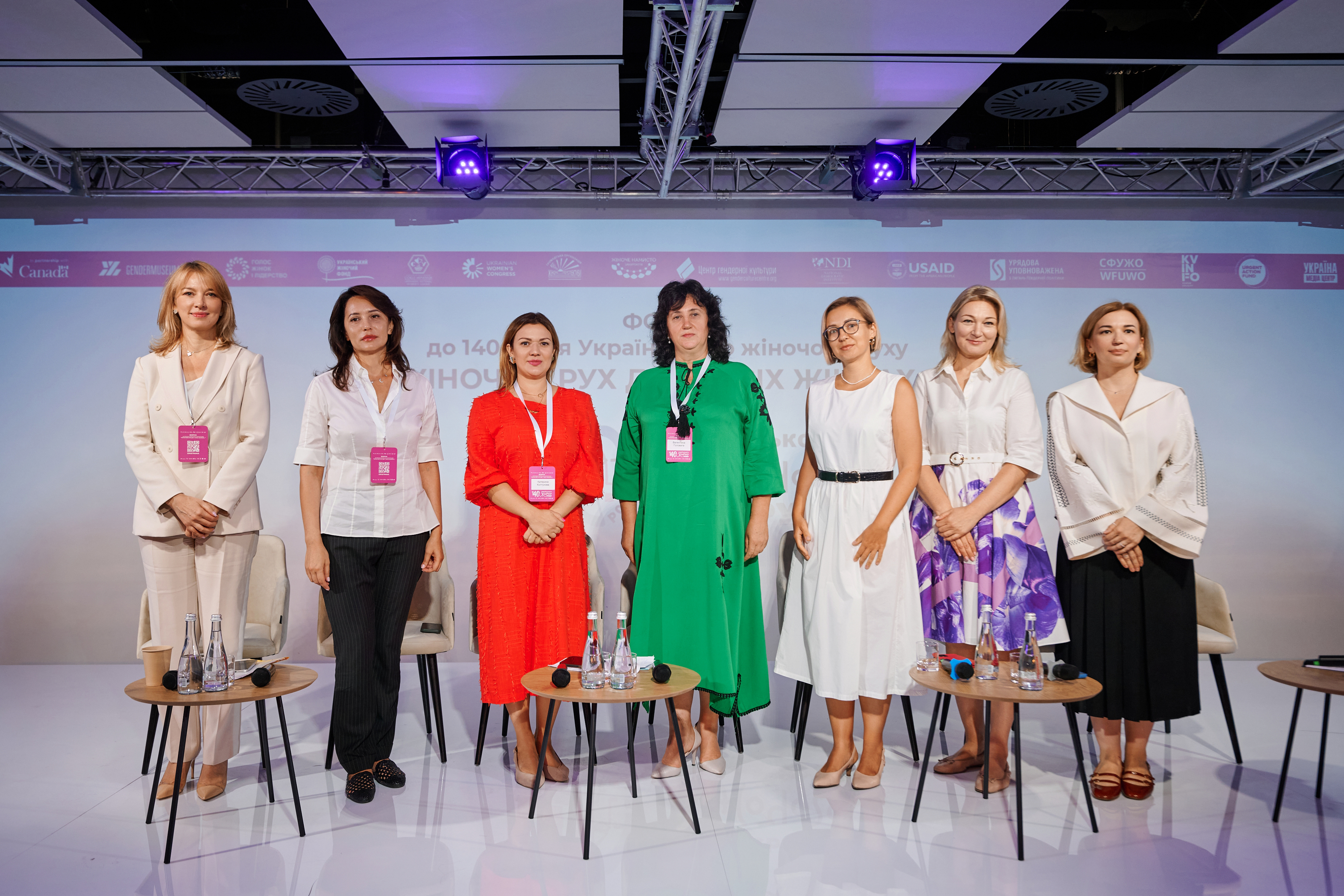It is important to demonstrate the representative nature of the public demand to the Cabinet of Ministers of Ukraine to review the regulation prohibiting all female local council deputies from traveling abroad. Additionally, joint efforts should be consolidated for advocacy and combating sexism in electoral processes to ensure balanced representation of women and men in the Verkhovna Rada of Ukraine and local councils.
This was agreed upon by the participants of the panel discussion “Modern Challenges and Opportunities for Women’s Political Participation,” held as part of the forum marking the 140th anniversary of the Ukrainian women’s movement “The Women’s Movement is Active in All Women.” The event took place on August 20-21 in Kyiv. The thematic panel was moderated by Olga Aivazovska, chair of the Board of the Civil Network OPORA.
Speakers at the event included Olena Shuliak, Member of Parliament of Ukraine, Head of the Committee on State Power, Local Self-Government, Regional Development, and Urban Planning; Maria Ionova, Member of Parliament of Ukraine, co-founder of the NGO “Ukrainian Women’s Congress”; Inna Sovsun, Member of Parliament of Ukraine, Co-chair of the Equal Opportunities Inter-Factional Union in the Verkhovna Rada; Maryna Khonda, Deputy Head of the Kyiv City State Administration for Local Self-Government Powers; Kateryna Koltunova, Deputy Head of the Kirovohrad Regional State Administration, Deputy of the Kropyvnytskyi City Council and Co-chair of the “Equal Opportunities” Deputies Group; and Valentyna Holovata, Head of the Myrne Village Military Administration, the Kherson Region.
The participants discussed women’s experiences in political participation—from defending political rights to real engagement in politics and state-building. They focused on key legislative achievements and challenges posed by Russian aggression regarding gender equality and increasing women’s representation in politics. They also emphasized the importance of enhancing women’s influence in decision-making processes.
As the discussion moderator, Olha Aivazovska highlighted the importance of a prompt and constructive dialogue regarding the timely legislative adoption of changes related to the residency requirement for citizens forced to leave the country during martial law. This refers to forced migration due to the war, which, in democratic countries, serves as grounds for temporary protection. Being abroad under such circumstances creates significant barriers for women to exercise their passive voting rights—the right to run for office and be represented in parliament. As Olha Aivazovska noted, these are proactive Ukrainian women with considerable advocacy experience, rising to high levels of representation in their host countries.
A unifying theme was the issue of restoring mobility for female local self-government representatives who lost it after the adoption of resolution No. 69 of the Cabinet of Ministers of Ukraine dated January 27, 2023, which banned all local council deputies, regardless of military obligation, from crossing the border, including women, persons with disabilities, and retirees. This has significantly limited the opportunities of female local council deputies, leading to a rupture in their connections with local self-governance bodies and, consequently, the potential collapse of the entire local governance system.
The discussion also touched upon the painful issue of the return and reintegration of displaced women forced to settle in other countries, while losing their connection with Ukraine. This, in turn, will present additional challenges during the rebuilding and recovery period of post-war Ukraine.
Event organizers: Museum of Women’s and Gender History, NGO “Center for Gender Culture”, Ukrainian Women’s Fund, National Women’s League of Ukraine, NGO “Ukrainian Women’s Congress”, NGO Center “Women’s Perspectives”, Network “Women’s Necklace of Zakarpattia”.
Event partners: Office of the Government Commissioner for Gender Policy, World Federation of Ukrainian Women’s Organizations, National Democratic Institute, Danish Centre for Research on Women and Gender (KVINFO), Urgent Action Fund for Feminist Activism.
